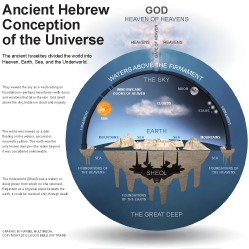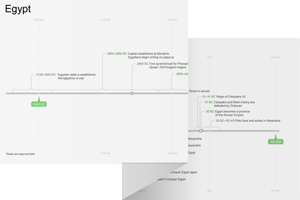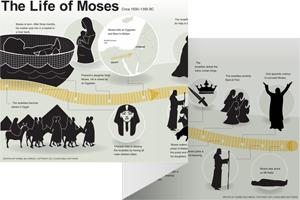6:1–5 Throughout this chapter, the prophet uses legal language to picture a courtroom scene. In a sense, this chapter represents God’s lawsuit against Israel (see Hos 4:1–19 and note). |
6:1 Hear now what Yahweh says Marks the beginning of the third major section of Micah. See note on Micah 1:2.
Plead your case The Hebrew terminology used here (and throughout this passage) has judicial significance. It often occurs in the Prophets to denote Yahweh’s covenantal lawsuit against those guilty of breaking His laws (e.g., Isa 3:13; Jer 2:9; Hos 4:1).
let the hills hear your voice The hills and mountains are called on to serve as a jury. They will hear the testimony provided by Yahweh, the prosecuting attorney.
6:2 the indictment of Yahweh More judicial terminology. See note on Micah 6:1.
you eternal foundations of the earth A relatively common title for mountains in the Bible (see Psa 82:5; Prov 8:29; Isa 24:18).
he contends The Hebrew word used here is a legal term meaning “to judge” or “render a decision” (compare Isa 2:4; Mic 4:3).
6:3 Answer The Hebrew word here is often used in the sense of giving testimony or bearing witness (see Exod 20:16; Prov 25:18; Hos 5:5; 7:10).
6:4 I brought you up from the land of Egypt The nation spent 430 years in Egypt between the time of Joseph and Moses.
Egypt |
Moses, Aaron, and Miriam The leaders of Israel when the nation was redeemed from Egypt. Aaron was the Moses’ older brother; Miriam was Moses’ older sister.
6:5 Moab Moab was a nation to the east of the Dead Sea. The events of the first half of this verse are narrated in Num 22–24.
Moabites were the descendants of Moab, |
Balaam the son of Beor Balaam was a highly successful and famous diviner who was hired by Balak to curse the nation of Israel. Yahweh turned Balaam’s intended curse into a blessing (Neh 13:2).
Shittim A place in Moab where Israel encamped prior to their entrance into the promised land (see Num 25:1–9; Josh 3:1).
Gilgal The first camp of Israel after crossing the Jordan River (see Josh 4:18–19).
so that you might know Yahweh reminds the people of their history to illustrate the many times He delivered Israel.
6:6 shall I approach Yahweh Here, Micah puts himself in the role of a worshiping Israelite.
burnt offerings, with bull calves a year old One-year-old calves were viewed as a premium sacrifice (Lev 9:2–3). Burnt offerings represented a person’s dedication to Yahweh. In a sense, the person was dying (giving himself wholly to Yahweh); however, the animal was put to death as a substitute.
6:7 with thousands of rams This and the other examples in this verse are hyperbolic. Even if a worshiper could make such extreme sacrifices, they would not be enough. This is not what God is asking for.
6:8 does Yahweh ask from you This verse gives the answer to the question the prophet asked in Micah 6:6–7. What God requires is heartfelt love and obedience.
to do justice A proper relationship with God also involves a proper relationship with one’s neighbor. See 3:1; Isa 5:7 and note.
kindness The Hebrew word here often occurs in reference to Yahweh’s covenant with Israel (see Deut 7:9, 12; 1 Kgs 8:23; Neh 1:5).
 Chesed Word Study
Chesed Word Study
humbly This Hebrew word occurs only here in the ot. It traditionally has been understood as referring to humility, but it most likely indicates carefulness or thoughtfulness.
6:9 the city Refers to Jerusalem.
to fear your name See Prov 1:7.
Hear, O staff There are two connotations to this phrase: “rod” or “tribe.”
6:10 the house of the wicked treasures of Probably a reference to the tribe of Judah.
the wicked treasures of wickedness Treasures gained by wicked behavior (see Micah 2:1–2; 3:2–3).
6:11 deceitful weights The wealthy abused the poor through the use of false scales and deceitful weights (see note on Jer 32:10). These faulty measuring devices increased the profits of merchants by cheating the poor. These false scales were seen as accursed because Yahweh demanded true and accurate scales (Deut 25:15).
and deceitful weights (see note on Jer 32:10). These faulty measuring devices increased the profits of merchants by cheating the poor. These false scales were seen as accursed because Yahweh demanded true and accurate scales (Deut 25:15).
6:12 her rich are full of violence See Micah 2:1–2; 3:2–3.
her inhabitants speak lies Likely a reference to intentionally dishonest measuring devices (see vv. 10–11).
6:14 but not be satisfied One of the curses Yahweh promised to bring on His people if they disobeyed Him (Lev 26:26).
6:16 Omri and Ahab serve as representatives of the long history of wickedness among Israelite kings. Ahab was the son of Omri. |
the regulations of Omri Like Ahab in the next clause, Omri represents corruption and evil.
Omri (meaning “servant of Yahweh”), the founder of Israel’s fourth dynasty, |
the works of the house of Ahab The wicked husband of the evil queen Jezebel; he likewise represents corruption.
Ahab |

|
About Faithlife Study BibleFaithlife Study Bible (FSB) is your guide to the ancient world of the Old and New Testaments, with study notes and articles that draw from a wide range of academic research. FSB helps you learn how to think about interpretation methods and issues so that you can gain a deeper understanding of the text. |
| Copyright |
Copyright 2012 Logos Bible Software. |
| Support Info | fsb |
 Loading…
Loading…



 Egypt
Egypt 
 Moabites
Moabites  Omri
Omri